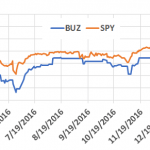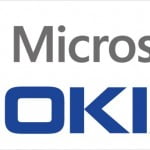
EARLIER
Apple iOS 10 Battery-Drain Fiasco Still Infuriating Users |
THIS STORY
Feds Sue Qualcomm for Forcing Chips on Apple |
LATER
Samsung Brings Android Nougat to Galaxy Phones |
| YOU ARE HERE: HOME |
|
|
NEWS OPS
By Shirley Siluk. Updated January 18, 2017 10:21AM SHARE
ALSO SEE
Federal Trade Commission
FTC
Qualcomm
Apple
Chips
Lawsuit
Government
Top Tech News
|
Chip-making giant Qualcomm is using unfair and anti-competitive practices to force cellphone companies to use its processors, according to a complaint filed yesterday in U.S. District Court in the Northern District of California by the Federal Trade Commission (FTC).Among the FTC’s allegations is that Qualcomm forced Apple into an exclusive arrangement to use its baseband processors to prevent competitors from boosting sales through Apple’s strong position in the global smartphone market. In return, Qualcomm cut the amount Apple had to pay in patent royalties, according to the FTC.
The FTC voted 2-1 to file the lawsuit, with Commissioner Maureen Ohlhausen dissenting. Ohlhausen said the decision to file the complaint was based on “a flawed legal theory.” Qualcomm yesterday expressed the same opinion, noting in a statement that it has “never withheld or threatened to withhold chip supply in order to obtain agreement to unfair or unreasonable licensing terms.” FTC: Qualcomm Forced Apple into Exclusive Arrangement The FTC’s complaint centers on Qualcomm’s patents for modem chip technologies that make it possible for mobile phones to connect with cellular networks. Those technologies were incorporated into telecom industry standards, making them essential for 3G and 4G communications. In exchange for becoming part of such standards, Qualcomm committed to licensing those patented technologies to other companies on “FRAND” (fair, reasonable and non-discriminatory) terms, the FTC noted. However, Qualcomm instead “consistently refused to license its cellular standard-essential patents to its competitors,” violating its FRAND commitments, according to the FTC’s complaint. When Apple sought to reduce its royalty payments, Qualcomm “conditioned partial relief on Apple’s exclusive use of Qualcomm baseband processors from 2011 to 2016,” according to the FTC. “Qualcomm’s exclusive supply arrangement with Apple denied other baseband processor suppliers the benefits of working with a particularly important cell phone manufacturer and hampered their development into effective competitors.” Apple recently began using modem chips from Intel instead of Qualcomm’s processors in some versions of the iPhone 7 and iPhone 7 Plus, which came out last year. Qualcomm Also Facing Complaints in Korea, EU In a rare dissenting statement, Ohlhausen questioned the basis for the complaint against Qualcomm. In addition to lacking “economic and evidentiary support,” the FTC filing was questionably timed, arriving on “the eve of a new presidential administration,” she noted. Ohlhausen also said the complaint would undermine U.S. intellectual property rights around the world. Qualcomm noted in its response that the FTC complaint was filed while the commission has just three of its five required members in place. It also pointed out that FTC chairwoman Edith Ramirez has said she plans to resign as part of the transition to a new administration. “We have grave concerns about the two Commissioners’ decision to bring this case despite a lack of evidence supporting the allegations and theories in the complaint,” Qualcomm executive vice president and general counsel Don Rosenberg said in a statement. “The intellectual-property-rights policies of the cellular standards organizations do not require licensing at the component level, and the FTC does not have the authority to rewrite industry policy. That is for the industry, not a regulator, to decide.” The U.S. is not the only region in which Qualcomm has been facing complaints about anti-competitive behavior. In December, for example, the Korea Fair Trade Commission imposed a fine of 1.03 trillion won ($880 million) for what it called an “unfair business model” that licenses Qualcomm technology at the handset rather than chip level. In July 2015, the European Commission, the European Union’s merger and anti-trust watchdog, also launched two antitrust investigations into “possible abusive [behavior]” by Qualcomm in connection with its pricing and licensing practices for modem chipsets. |
[“source-ndtv”]









